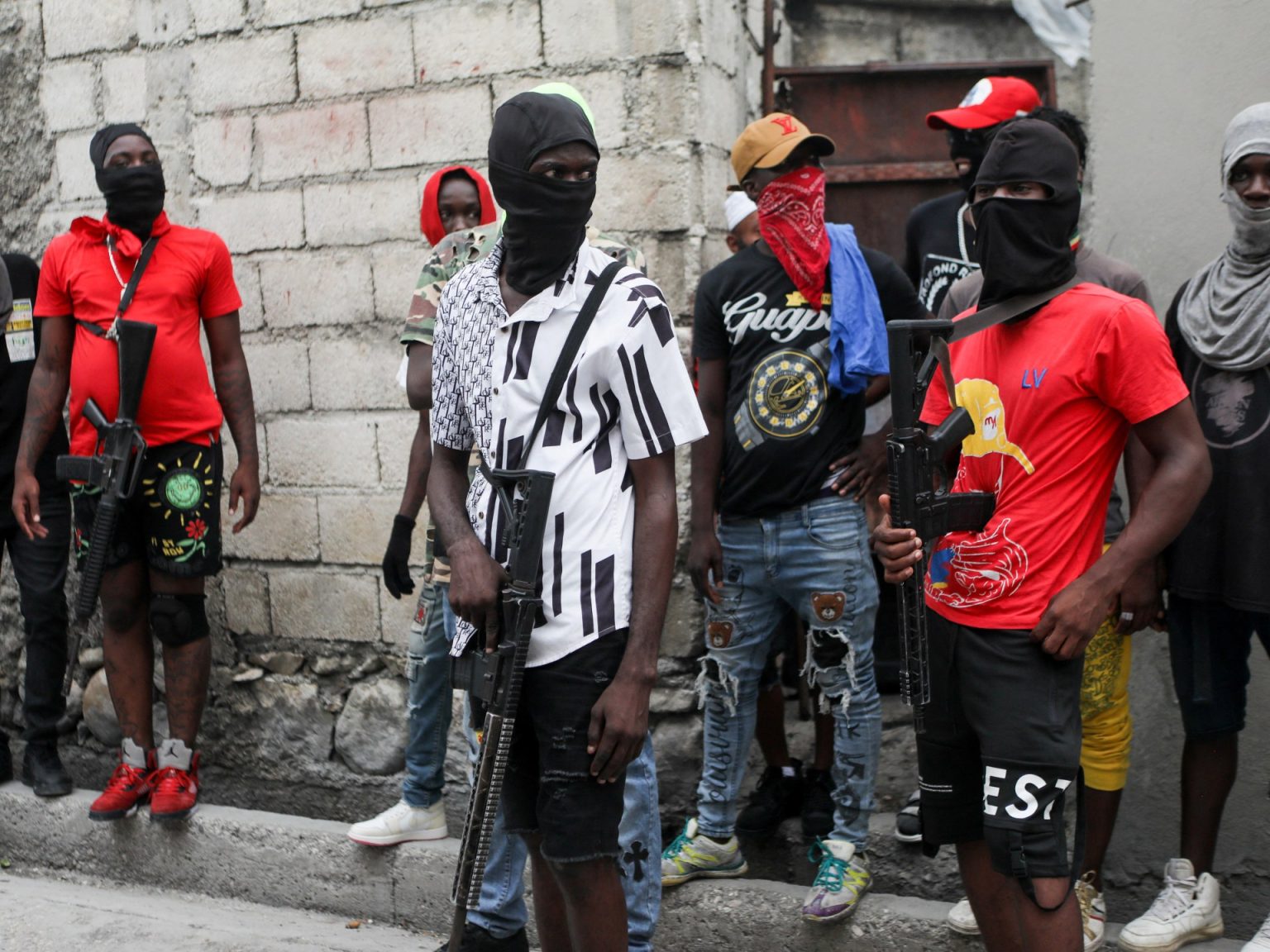Armed groups in Haiti have been causing unrest and violence for years, leading human rights advocates and civil society groups to demand that the flow of illicit firearms to criminal gangs, particularly from the United States, be stopped. The capital of Port-au-Prince is currently experiencing a surge in deadly gang attacks, prompting renewed calls for action. Rosy Auguste Ducena, a lawyer and programme director at the National Human Rights Defense Network (RNDDH), points out that Haiti does not have its own weapons or ammunition factory, indicating that the firearms causing chaos in the country are likely entering from elsewhere, with a significant portion coming from the United States. The unchecked flow of various types of weapons and ammunition into Haiti is facilitated by weak state institutions, corruption, and challenges in monitoring the country’s vast coastline.
The need for the United States, in particular, to help control the flow of firearms leaving their country for Haiti is emphasized by Ducena. She believes that this action would be a significant step towards addressing the escalating violence in Haiti. With handguns, semi-automatic weapons, and even military-style firearms easily entering the country, the situation is becoming increasingly dire. The lack of regulation over these arms is exacerbating the already unstable conditions in the country, as criminal gangs continue to carry out violent attacks with impunity. The importance of international cooperation and support in combatting the illegal arms trade is underscored by the situation in Haiti, where the influx of weapons is fueling further instability and insecurity.
The broader implications of the unchecked flow of firearms into Haiti are profound, as the availability of weapons contributes to the cycle of violence that has plagued the country for years. In addition to the direct impact on the safety and security of Haitian citizens, the proliferation of arms also hinders efforts to promote peace, development, and human rights in the country. Addressing the root causes of the illegal arms trade in Haiti requires a multi-faceted approach that involves not only strengthening state institutions and improving oversight mechanisms but also engaging in international cooperation to stem the flow of weapons from countries like the United States. By working together to address the underlying issues driving the violence in Haiti, there is hope that progress can be made towards building a more peaceful and secure future for the country.
The implications of the influx of illicit firearms into Haiti extend beyond the immediate security concerns, as the availability of weapons also has broader social and economic consequences for the country. The prevalence of armed groups and the easy access to firearms create a climate of fear and instability that hinders economic development and investment in Haiti. In addition, the cycle of violence perpetuated by the illegal arms trade contributes to a culture of impunity and lawlessness that undermines the rule of law and weakens the social fabric of the country. Addressing the root causes of the proliferation of weapons in Haiti is essential not only for the safety and security of its citizens but also for its long-term stability and prosperity.
The impact of the surge in gang violence in Haiti is felt most acutely in the capital of Port-au-Prince, where deadly attacks and unrest have become a daily reality for residents. The inability of the Haitian government to effectively address the root causes of the violence, including the flow of illicit firearms into the country, has exacerbated the situation and left many feeling vulnerable and disillusioned. While human rights advocates and civil society groups continue to call for action to stop the influx of weapons, there is a pressing need for concrete steps to be taken to address the immediate security concerns facing Haiti. Engaging in international cooperation to crack down on the illegal arms trade and strengthen state institutions is crucial to bringing an end to the violence and instability that have plagued the country for years.
In conclusion, the issue of illicit firearms flowing into Haiti, particularly from the United States, is a pressing concern that requires urgent attention and action. The unchecked proliferation of weapons has fueled a cycle of violence that threatens the safety and security of Haitian citizens, undermines the rule of law, and hinders the country’s economic development and stability. By addressing the root causes of the illegal arms trade through a comprehensive approach that involves international cooperation, strengthening state institutions, and improving oversight mechanisms, there is hope that progress can be made towards building a more peaceful and secure future for Haiti. As the calls to stop the flow of illicit firearms grow louder, it is essential for the international community to come together to support Haiti in addressing this critical issue and working towards a more peaceful and prosperous future for the country.


